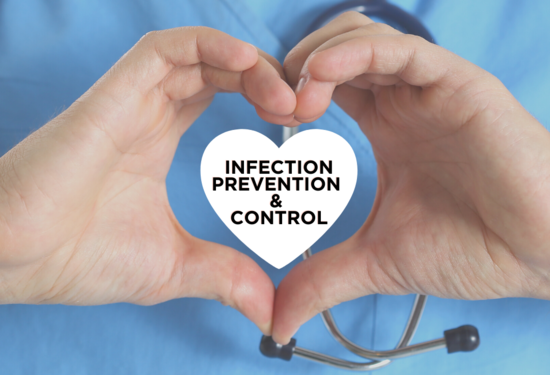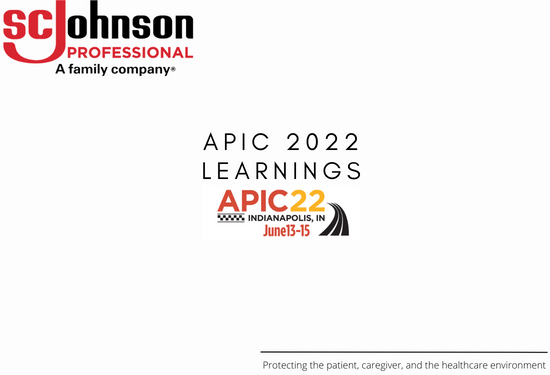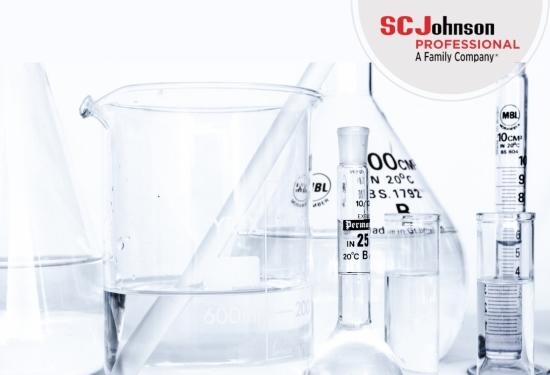SC Johnson Professional Recognizes Infection Preventionist, Heather Snyder, for International Infection Prevention Week 2022
By SC Johnson Professional Healthcare
Taking place October 16 – 22, International Infection Prevention Week is a time to recognize the hard work of infection preventionists (IP) throughout the world. Much of their work to protect patients, healthcare workers, hospital staff and visitors often goes unrecognized. To honor these vital members of healthcare facilities’ staff, SC Johnson Professional sat down with Heather Snyder, Manager of Infection Prevention with Atlantic General Hospital in Maryland, to learn more about her experiences as a frontline IP.
First and Foremost: Reducing Healthcare Associated Infections (HAIs)
Snyder oversees a team of IPs and is responsible for directing all the IP efforts within Atlantic General Hospital. She says one of the biggest impacts of the IP department is the reduction of HAIs.
“We work to identify HAIs early on, and work backward through the process to determine why the HAI occurred, and how we can address ongoing workflows to support eliminating the problems that caused that infection,” Snyder said.
Snyder says her team is also responsible for minimizing surgical site infections. This includes identifying infectious patients and ensuring they are properly isolated to keep the patient safe and to prevent the transmission of infection to others in the hospital.
A Career in Infection Prevention: From Required to Desired
Snyder had been a nurse for over 20 years when she was redeployed to the infection prevention department at the start of the COVID-19 pandemic. As she learned more about why COVID-19 was occurring, spreading and how her team was going to control it, she fell in love with the science behind medicine.
"As we went through COVID-19, we learned how to interpret microbiology, how to determine the viral spread and load and looked at how COVID-19 related to other viral infections in the past. I started learning more about the history of infection and was really intrigued by it,” Snyder said. “I saw it as an opportunity to grow a skill set that in 20-plus years of nursing I had never developed.”
She says that in the slightly more than two years she has been in IP, she’s learned that every day is different.
“If you want to be a lifelong learner, this is the best place to be because the science of medicine is always changing. There’s always going to be something new on the forefront, and for me, that is the most exciting part of nursing,” Snyder said.
Snyder also says that the most rewarding part of her job is the positive impact she has on patients.
“As we figure things out, and my department is able to enhance the quality of care we provide, that is very rewarding to see,” Snyder said.
COVID-19: The All-Encompassing Pandemic
For a period, everything Snyder and her team did was centered around COVID-19. With national and state reporting requirements, patient requirements and the education she had to provide within the hospital and the community, other areas of infection prevention had to be paused.
“COVID-19 was all we did during last year’s surge” Snyder said. “Unfortunately, looking for ways to prevent infection outside of COVID-19 fell by the wayside. We were just trying to keep our heads above water.”
However, as things slowed down, Snyder and her team quickly identified potential areas of improvement. One area she identified was surgical services. Snyder saw a spike in surgical site infections that was unprecedented in the 30-year history of the hospital. Working with a small group, Snyder and her team made it a goal to figure out why the hospital was experiencing an increase in surgical site infections.
“As we looked at those basic building blocks of IP like proper hand hygiene, good disinfection in rooms, appropriate attire, cleanliness of our staff and patient prepping, we found some processes along the way that could be improved,” Snyder said.
Working with the surgical services team, Snyder developed key performance indicators (KPIs) and a checklist to keep every patient safe. Following implementation, surgical site infections decreased from Q1 to Q2 by 10 percent.
“This work didn’t impact just one patient, it impacted an entire team,” Snyder said. The outcome of this activity will continue to impact patients for the long-term. It’s exciting to see that moving forward, we will never see the same level of surgical site infections again.”
The Spirit of Collaboration
For those new to the profession, Snyder suggests taking advantage of industry resources, both internally and externally, and building a network outside of the organization.
“Being fairly new to the role, I didn’t have a lot of resources. As I built a network outside of the hospital, I began to take advantage of the professional organizations, free training and professional groups. I wish I would’ve connected earlier in my journey with those groups.”
Snyder says the profession includes one of the most collaborative groups of nurses.
“You’re never truly alone. Your peers really want to see you succeed. There’s never a lack of resources, so reach out and utilize those,” Snyder said.
Snyder says she would encourage anybody thinking about a career in IP to take the leap.
“If you’re intrigued by microbiology or learning about science, you are going to love it. For those concerned it’s not a fit or too much to take on, I would encourage you to go for it. There is a great community to support you. For me, it has probably been the most fun I have had in my career. I am honestly thankful for the redeployment and wish it is something I had looked into sooner,” Snyder said.
Return to news



